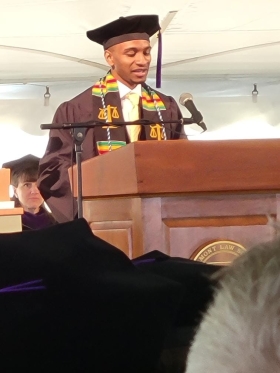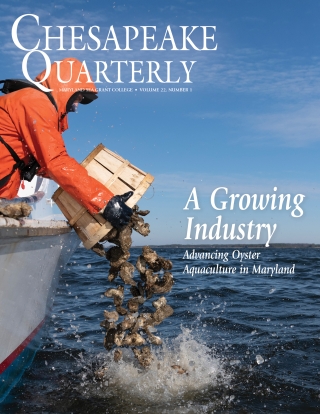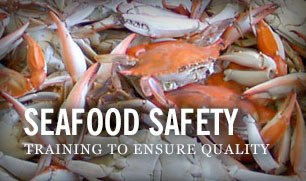Knauss legislative fellowships in Congress help build careers — and they're fun and educational. See our video and fact sheet for details.
Meet Maryland Sea Grant’s New Law and Policy Fellow
“Working with people is what it’s really about,” says Kai Hardy, Maryland Sea Grant’s 2023-2024 law and policy fellow. Hardy was studying natural resources and environmental science at the University of Illinois when an environmental law class changed his trajectory. After completing his undergraduate degree, Hardy left Illinois, where he was born and raised, to enroll in Vermont Law School. He passed the bar exam and joined Maryland Sea Grant in September 2023 to begin a year-long fellowship that bridges law, policy, and environmental research.
In an interview, Hardy shared what drew him to environmental law and what he hopes to gain from his fellowship experience. This interview has been condensed and edited for clarity.
What made you want to study environmental law?
About halfway through my undergrad experience, I started to develop an interest in environmental policy. It's fascinating how the law works and the impacts it can have. We want to make sure the environment is safe for people, but people are also responsible for the protection or degradation of natural resources. Anything that gets protected or degraded is because of policy, so I thought it would be cool to be involved in that process.
Can you tell me about your experience in law school?
I really enjoyed law school. My first year there was the first year of the COVID-19 pandemic. I moved to Vermont, despite the first semester being virtual. I thought it would be good to meet people and develop roots in the community and with the student body. You hear about law schools being very competitive or adversarial, but Vermont Law School was very tight knit.
During my time there, I took courses in environmental law, natural resources law, and water resources law. I also participated in an environmental justice clinic with five to 10 other students. It’s essentially an experiential learning requirement. We worked for a supervising attorney and helped with cases to make sure environmental burdens and benefits are shared equally. We talked to clients and conducted research. It was challenging but worth it. I also participated in a moot court competition, where I gained experience speaking in front of a judge.
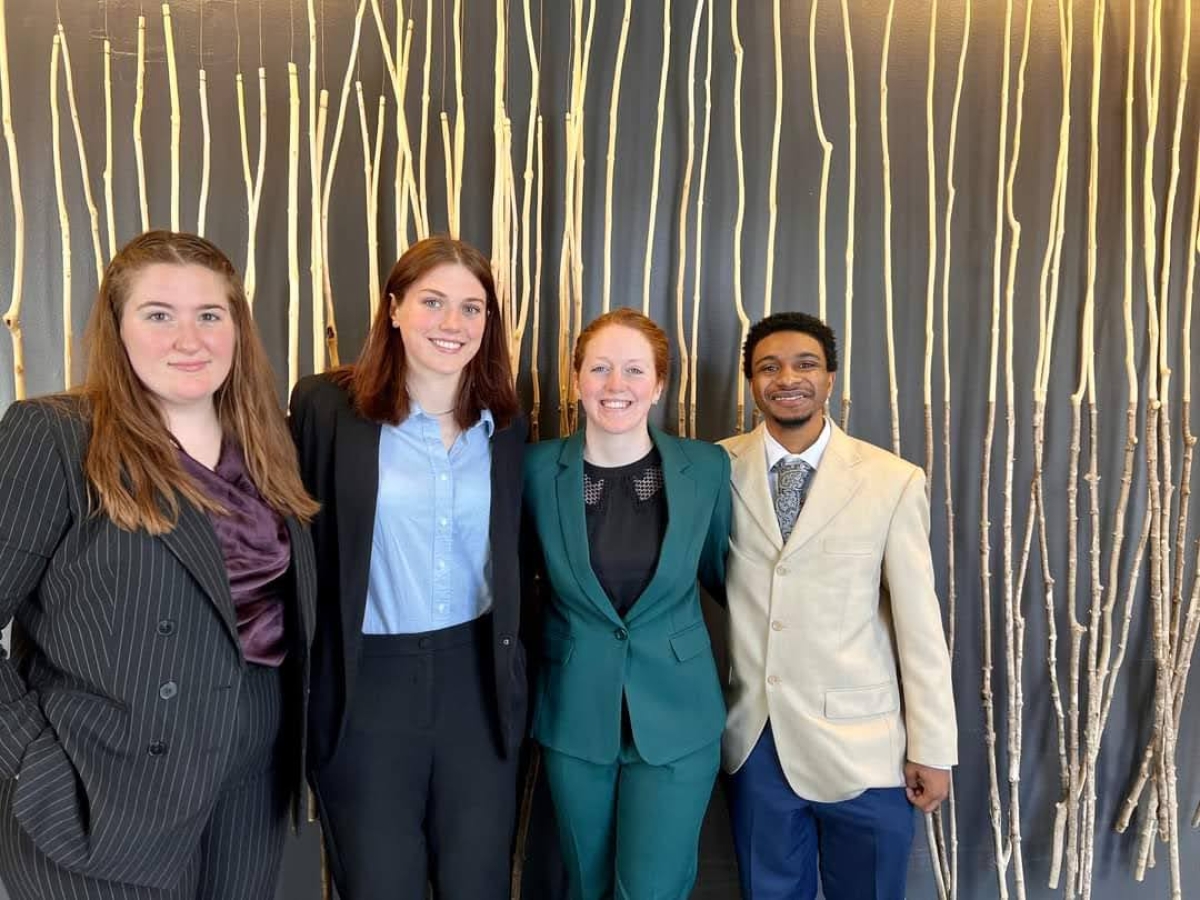
I found out I passed the bar last month. It was a great feeling. Now, I'm trying to decide where to be long term. My interests are certainly in environmental law—specifically pollution, pesticides, land use, and waste disposal.
What brought you to Maryland Sea Grant?
I've always been fascinated by the ocean. As a kid, I wanted to be a marine biologist. And I really appreciate that a priority of this work is reaching underserved communities, which is very near and dear to me. Everywhere I’ve lived, there’s always been this clear line between communities that are served and communities that are not. Having an impact on everybody, regardless of economic, racial, or ethnic differences, I thought sounded perfect. And I felt like [this fellowship] would be a good bridge between law school and something more permanent. It wasn’t a very hard decision once I got the offer.
What types of projects will you be working on?
My primary project will involve organizing and directing a National Sea Grant Law Center Symposium, provided we get selected. The purpose of the symposium is to increase the legal capacity of Maryland Sea Grant and provide public education about some of the major legal issues and policy decisions concerning the Chesapeake Bay watershed. My other main project will be developing a Shellfish Aquaculture Guide for individuals and companies looking to get into the aquaculture industry in Maryland. Additionally, I plan on publishing a Living Shoreline Permitting Guide and Flowchart that was drafted by one of Maryland Sea Grant’s previous fellows, Elissa Torres-Soto. The guide is designed for landowners who want to protect their shorelines from coastal erosion.
One thing that has surprised me, but in a very good way, is the emphasis on professional development. That’s been very valuable already. It's great meeting people and building a network in Maryland of different stakeholders—politicians, industry, scientists, and other lawyers. I’ve met folks that can help with projects or present ideas.
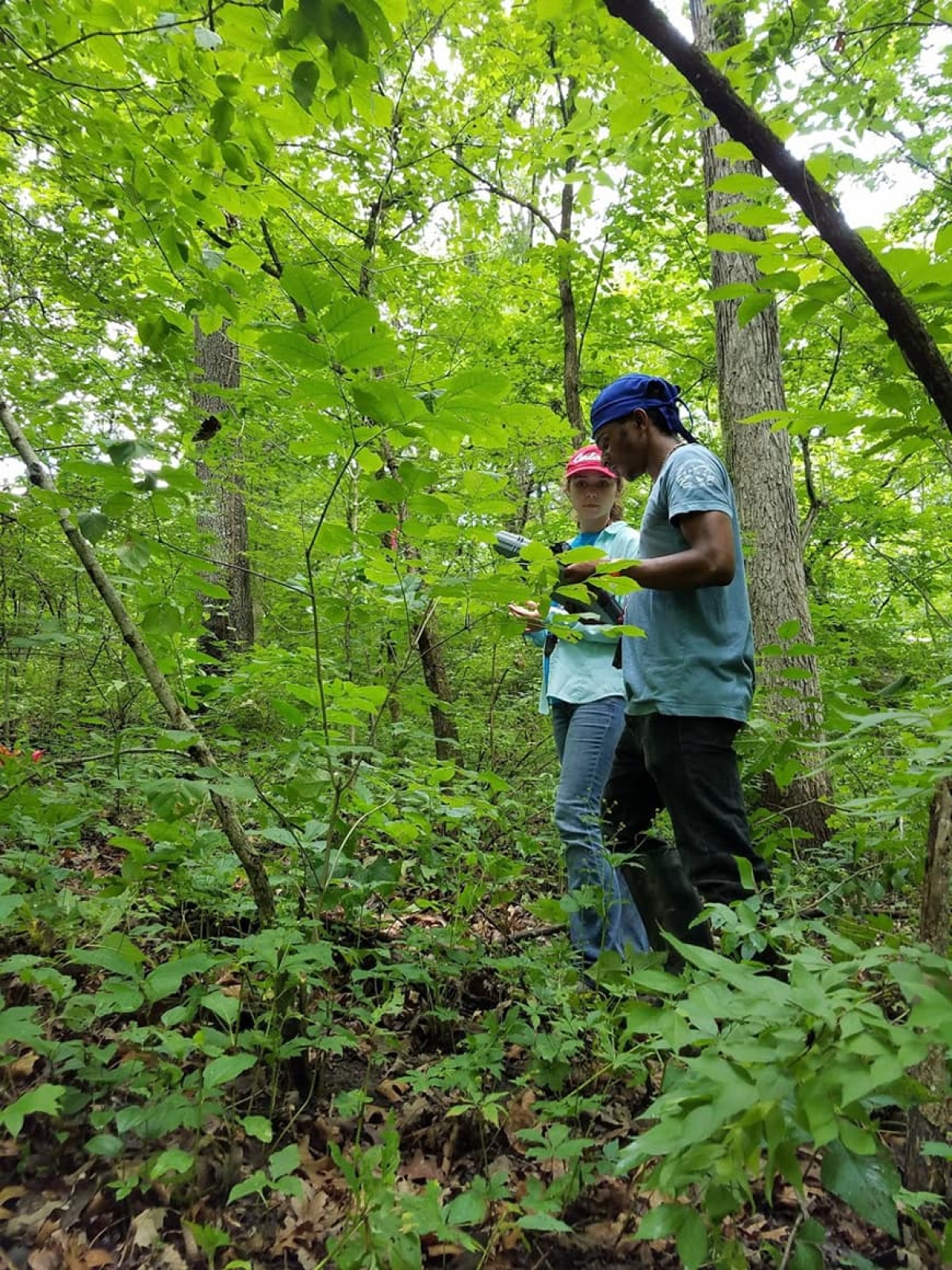
Why do you think having experts at the intersection of law, policy, and the environment is important?
The goal is to make sure that the environment is safe and healthy for people to live in and that natural resources can thrive, either for the benefit of people or just because they have intrinsic value. But the fields [of law and science] can be so technical. They can be very exclusive, and that’s a problem. They need to be understandable, because everybody is bound by the law and everybody is subject to the laws of science.
"They need to be understandable, because everybody is bound by the law and everybody is subject to the laws of science."
I think bridging that gap by merging the fields of environmental science, law, and policy can create accessibility. When you merge the public with the science, it kind of forces us to use less jargon and to communicate to somebody that doesn't have the same expertise. And it’s for the benefit of everybody. If policymakers can understand what the laws are and what the science is, they can create policies that protect the environment, which also protects people.
What do you hope to gain from this fellowship experience?
What is most fulfilling to me is identifying the needs of different stakeholders, as far as legal guidance, and helping to meet those needs. Making things clear so work can be done and policies can be developed—that's the reason I wanted to get into environmental law. If it's unclear what a process is or how a law would impact somebody, I want to be able to make that clear and helpful.
Another aspect is learning how to tackle state law. In law school, a lot of what you learn is on the big scale—constitutional issues, federal laws. But the federal government has very limited authority to regulate in most areas. There are several major environmental statutes, like the Clean Air Act and the Clean Water Act, that set the floor, which means states can't go below those standards. But you’ll often see states enact standards that are more stringent and protective, and they’ll regulate in a lot more areas. Some state constitutions also have protections like the right to a clean environment. That's one of the cool things about working in Maryland, knowing there is such a push to protect not only the environment but also human rights. Maryland also has some of the most ambitious climate goals, other than California.
Do you have an idea of what you might like to do after this fellowship?
During one of my summers in law school I interned at one of the regional offices of the US Environmental Protection Agency. The regional offices deal with enforcement, initiating actions against companies or individuals that were violating permits for air or water, or weren't properly disposing or storing toxic waste. It was great work. You feel like you’re making a difference. It was also educational in that you really got to know some of the details of these extremely large environmental statutes and the regulations that accompany these laws. I think that’s something I'd be interested in going back into. And then I’ll just see what else comes up from my time here. This fellowship is giving me great exposure to the types of legal and policy issues that arise in the field of ocean and coastal law.
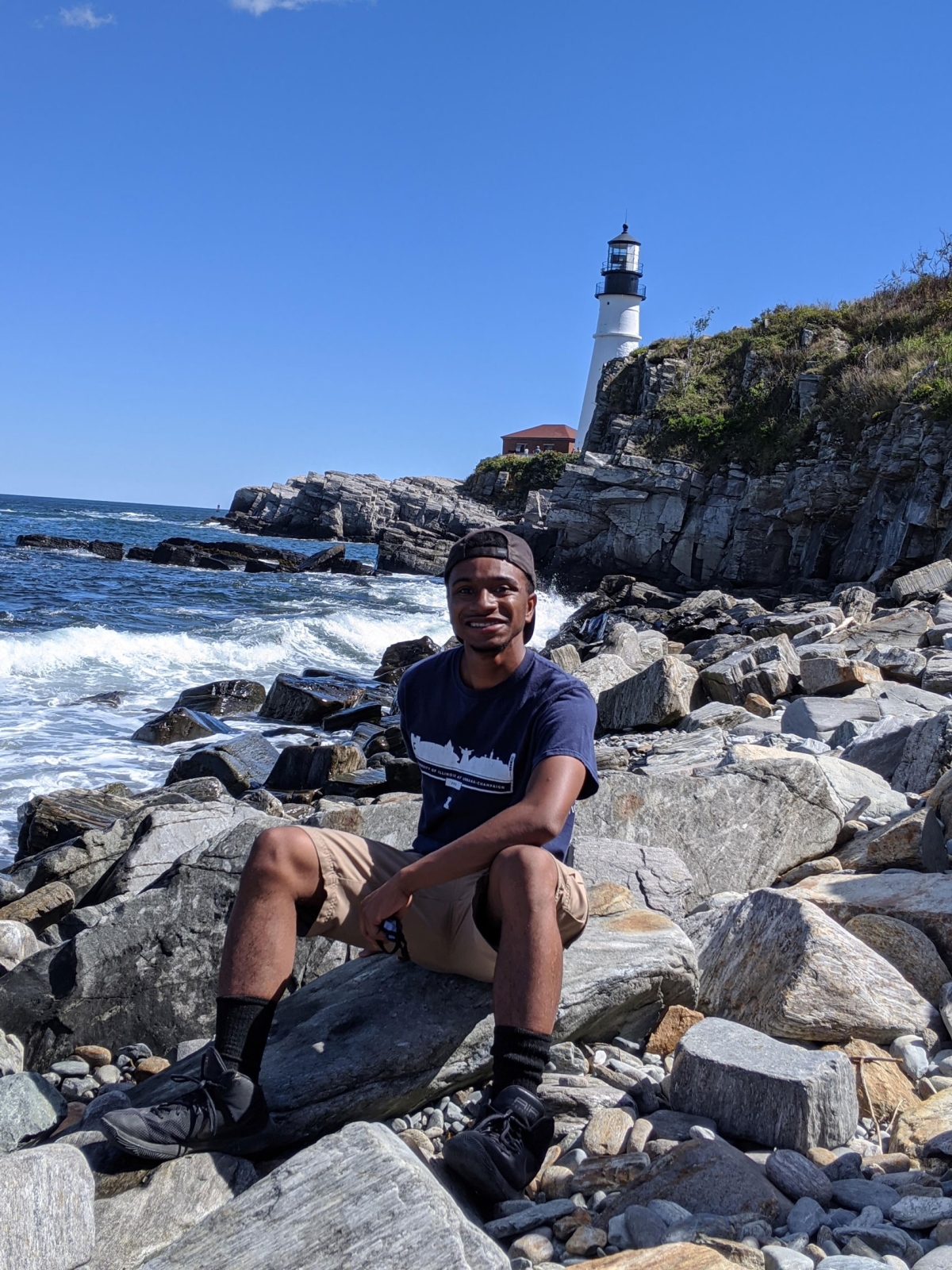
What do you like to do outside of school and work?
I love playing and watching sports—basketball, football, baseball. I also enjoy spending time outside, hiking, and boating. I love watching movies. Some of my favorites include Marvel, Star Wars, those big blockbuster franchises. And then I really love reading fiction. One of my favorite books is The Call of the Wild. I just love how it portrays nature, and specifically, the Yukon, Alaska, wilderness during the Gold Rush. Such a harsh environment can be unforgiving but also very beautiful. I also play the clarinet. I'm part of the Maryland Community Band at the University of Maryland, and I play the guitar a little bit too.
See all posts from the On the Bay blog
